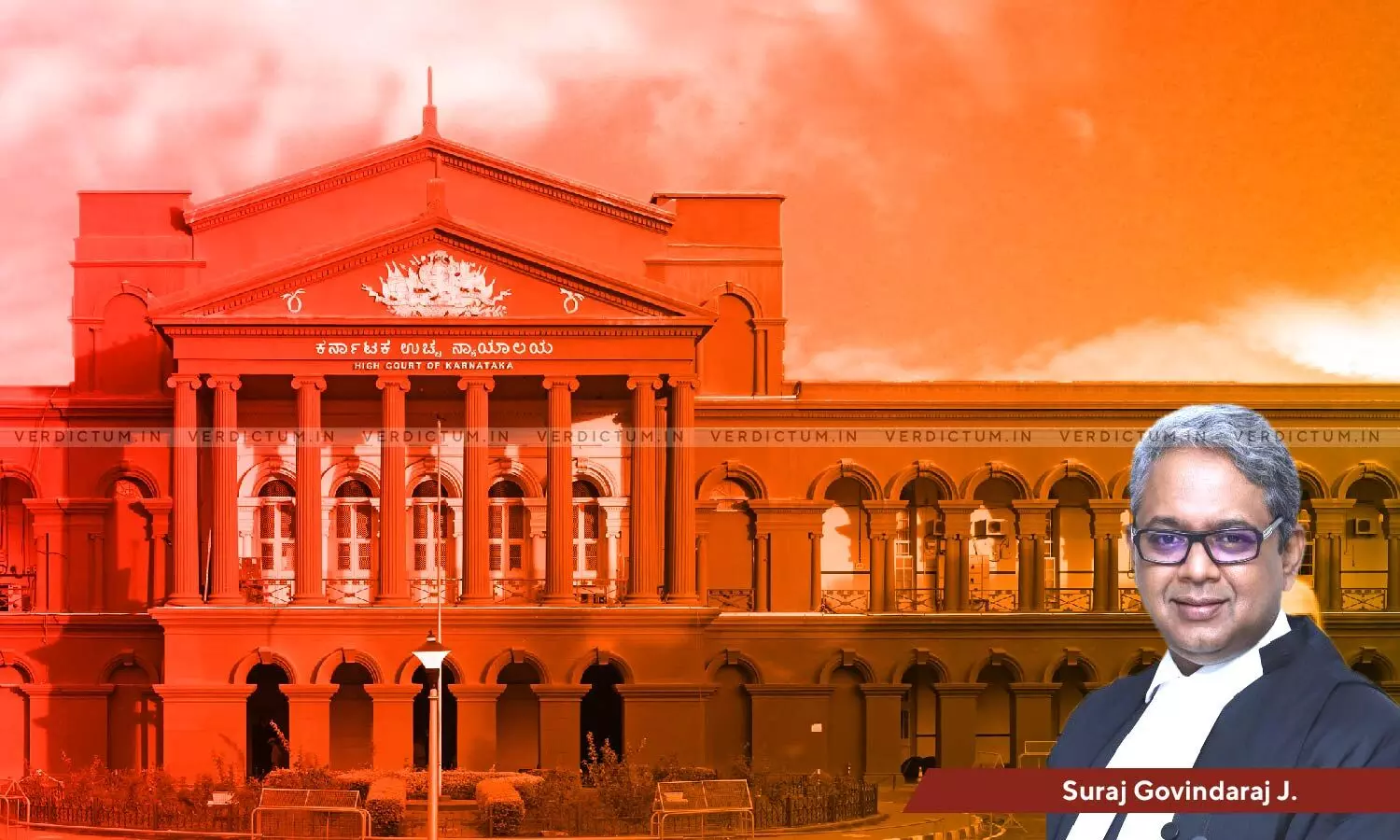
Residential Schools Must Obtain Certificate Of Registration U/S 18 Of RTE Act: Karnataka HC
 |
|The Karnataka High Court has upheld the fine imposed by authorities on a residential school for not filing the Form-1 requisite under Karnataka Right of Children to Free and Compulsory Education Rules, 2012 (‘Karnataka RTE Rules’), which is in violation of Section 18 of the Right of Children to Free and Compulsory Education Act, 2009 (‘RTE Act’).
The Bench of Justice Suraj Govindaraj observed, “Thus, reading of Section 18 of the RTE Act with Rule 11 of the Karnataka RTE Rules, it is mandatory for a School other than a school established, owned and controlled by the appropriate Government or the local authority to apply for in terms of Form-I of the Karnataka RTE Rules, 2012 for recognition under the RTE Act, there being no exceptions...Hence, I answer Point No.1 by holding that there is a requirement for a school to obtain a Certificate of Registration under Section 18 of the RTE Act.”
Advocate M.P. Srikanth appeared for the Petitioner whereas HCGP Saritha Kulkarni appeared for the Respondents.
The Petitioner, which claims to be a charitable trust, runs a residential school. An appeal was filed by two persons under sub-Section (1) of Section 18 of the RTE Act read with Rule 11 of the Karnataka RTE Rules, alleging that the Petitioner’s school had not obtained recognition under the RTE Act and sought for action to be initiated.
The Petitioner had appeared before authorities and submitted that the RTE Act does not apply to its school as it is a residential school. After subsequent notices by Respondents and other authorities, the Deputy Director of Public Instructions i.e. Respondent No. 4, had imposed a penalty of Rs. 1,60,50,000/-. Aggrieved, the Petitioner had filed a writ petition which was partly allowed and the matter was remitted to the Chief Executive Officer (CEO), who, consequently, imposed a penalty of Rs. 1,61,50,000/-. The Petitioner, therefore, challenged the order of the CEO.
The Court framed four issues for its consideration, i.e., Whether there is a requirement for a school to obtain a Certificate of Registration under Section 18 of the Right of Children to Free and Compulsory Education Act, 2009. 2) Whether the petitioner violated Section 18 of the Right of Children to Free and Compulsory Education Act, 2009. 3)Whether it was required for the CEO to have considered all the requirements under the Karnataka RTE Rules after the remand made by this Court in another petition and 4) Whether the order passed by the CEO is proper and correct and requires interference at the hands of this Court.
As regards the first issue, the Court further held, “Thus, in terms of sub-rule (2) of Rule 11 of the Karnataka RTE Rules, there is an obligation imposed on the school to make a self-declaration in Form-I within six months of the commencement of the Rules, which Rules came to be published in the official gazette on 28.04.2012 and thus, came into force on 28.04.2012 requiring the Governing Council of the School to make the declaration in Form-I by 27.10.2012. This obligation being a statutory obligation on the Governing Council, it was but required for the Governing Council to discharge the obligation.”
While dealing with the second issue, the Court said that if a school failed to file the requisite form then there would be a violation of sub-rule (2) of Rule 11 of the Karnataka RTE Rules and therefore, Section 18 of the RTE Act by the Petitioner.
The Court, as regards the third and the fourth issue, the Court observed, “…the matter was remitted to the CEO to provide an opportunity to the petitioner to answer the allegations and thereafter after providing an opportunity of hearing pass orders, which has been so done and therefore, there is no violation of Section 23 of the Karnataka RTE Rules…The factum of non-filing of the application in Form-I is clearly established and accepted or admitted, and there was no further requirement for a reasoned order by the CEO in this regard there being no dispute…the order passed by the CEO is proper and correct and does not require any interference at the hands of this Court.”
Accordingly, the Court dismissed the writ petition.
Cause Title: Jnana Sarovar Educational Trust v. State of Karnataka and Ors. (Neutral Citation:2024:KHC:17757)
Appearances:
Petitioner: Advocate M.P. Srikanth
Respondents: HCGP Saritha Kulkarni, Advocate B.J. Somayaji, Advocate Sharath Kumar Shetty